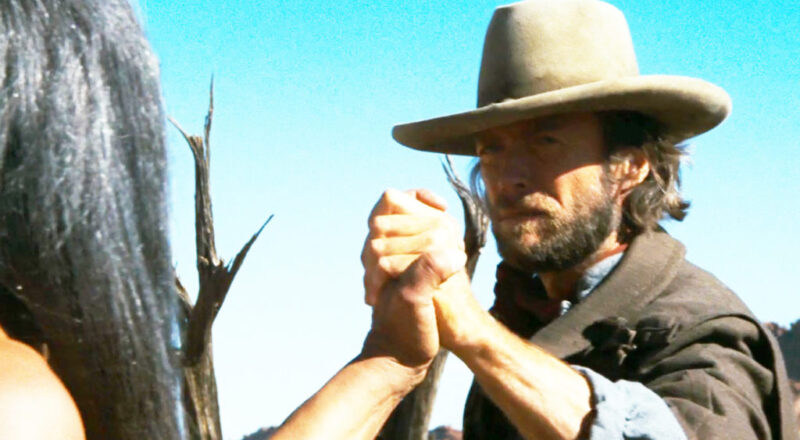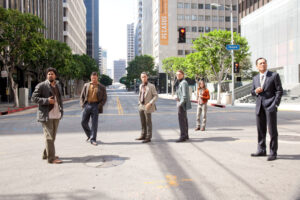Similar movies like The Outlaw Josey Wales Click Here ! , IMDB movie details Click Here !
Set in the post-Civil War era, Clint Eastwood plays Josey Wales, who joins the Southern Army after the dramatic change in his hometown. As the Civil War declares the defeat of the South, Josey Wales, who refused to lay down his arms, became a cowboy. This is a style from the traditional Western: cowboys reject civilization and domestication, travel the world while completing a mission, and tell their stories. Only by being labeled as lonely, silent, and cold could label one a proper cowboy. Alcohol, gambling, womanizing, or killing are just fetishes of lonely cowboys, but those does not hold their backs. Death’s knock on the door begins with the cowboy’s “feelings”. Love, affection, tenderness, etc. will kill the cowboy. But through the twists and turns, the cowboy can find his home and settle down, implying both the acceptance of civilization and the demise of the cowboy.
The alienating plot in this film is when Josey Wales, who has been rejecting his fellow travelers, ended up having to become the leader of a group of people, implying the increase of responsibility. Holding backs and responsibility are the cowboy’s enemies. At the same time, the process of getting along with many people inevitably made the cowboys participate in social life, subtly completed the transformation from nationality to agricultural society. In plots of traditional Western, the lead character must complete a task, and this process is the main part of the film. The cowboys, after completing the task, are often given a ending that the audience can imagine by the director, which is mostly about the cowboys continuing to maintain their previous lives, and what changed was the state of mind of the cowboys and the people around them. To be civilized or socialized, the plot didn’t makes cowboy’s character pure, and means that it no longer has the traditional genre of Western, with the advantage of making the film a big basket, all in the modern commercial life of people can be related to the focal length of the Westerns, and the boundary of the western expanded.
In addition to the lack of words and facial expressions that have always been a part of CE’s screen persona, Josey Wales in this film has the added trait of spitting everywhere. In stark contrast to the tradition and alienation of the Westerns mentioned above, Josey Wales has to swallow his spittle in front of an old woman, Lone Watie, after shamelessly “Pooh” when he was a cowboy. The object of “pooh” even included a dead body and a dog, the former of which is taboo and the latter of which is offensive to ordinary people. Wales’s encounter with the old lady is even more interesting. Before they meet, the old lady dismissed Wales as uneducated, but after they meet, the wild cowboy had to behave himself. The simplicity of cowboys is reflected to a certain extent in Wales’s “Pooh,” The first half of the movie reflect was such a pure cowboy and cowboy style. In the second half of the movie, when a young, beautiful and feminine member of the opposite sex appeared, the intention of the film remained very simple: we expect and witness the union of these two people. The emotional growth was very simple and not as tedious as in modern films.
The Indians are an integral part of the western, whether in the form of negative or positive characters who suffering. In this film, the cross of the cowboy to the Indian has a wonderful effect; . Josey Wales got up early that day, as if to suggest that he had to face the fate and lose the peaceful life he had gained, but his final reconciliation with the Indian both changed Wales’ fate and transformed the image of the Indians from savage robbers to people who are equal, and can communicate and understand, Therefore, the characters of western films were different again.

